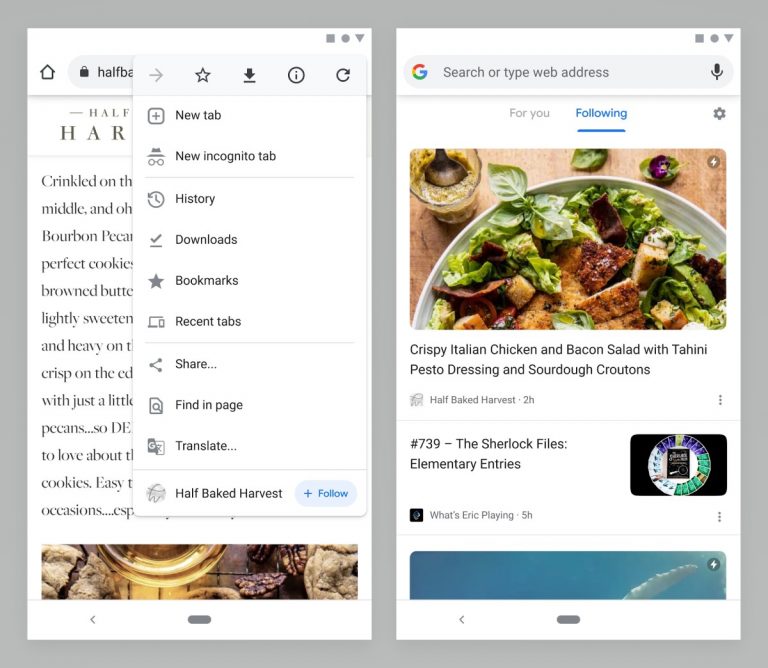Google has just announced the experimentation of a new feature to reintegrate the reading of RSS feeds to its search engine and so, less than a decade after being banned! We took stock of the situation.
- Where are RSS feeds?
Firstly, let us go back to the basics. The acronym RSS comes from “really simple syndication”. It is content produced automatically as a website updates.
As summarized on the dedicated Wikipedia page:
RSS feeds are XML files that are often used by news sites and blogs to present the titles of the latest searchable information.”
In other words, it is a way for a reader to centralize all the latest news in one place. Knowing that most sites producing content have RSS feeds, usually materialized by an orange image with an icon symbolizing a broadcasting.
Without getting too technical, the reading of an RSS feed is done by means of an aggregator software that will connect to the site issuing the RSS feed and convert it into an HTML format and thus allow reading. Very used by blogs originally, it is possible to insert them on any website.
- Advantages and disadvantages of RSS feeds
It is understandable that the great interest of RSS feeds is to make known the updates of its site in real time and without great effort. For a site that produces content, this can have several advantages compared to a newsletter that, in use, may be seen as a close service:
- RSS feeds do not require specific action. Unlike a newsletter that must be created and programmed.
- It can be aggregated with other flows (which makes it possible to centralize several sources of information in the same place and in the same interface). Instead of having to subscribe and receive the newsletter from each media of interest.
The limit? The received format is very basic and the diffuser cannot customize it. Contrary to a newsletter where it is possible to format the information, to work on the design, to vary the formats etc. Another not negligible disadvantage: the difficulty of inserting advertising other than textual.
- Why did they lose interest?
On March 13, 2013, Google announced the closure of its RSS Google Reader information feed reader. Yet, an unavoidable aggregator on the market. The reason given: the evolution of the consumption of information since the beginning of Google Reader in 2005.
In an interview with the American magazine Wired, Richard Gingras, Senior Director News & Social Products of the firm, said:
Our culture has evolved into an almost constant consumption of current events. Smartphone and tablet users will look for small doses of information throughout the day. This entirely replaces the old behaviours where we had a uniform consumption at breakfast or on the couch at the end of the day.”
Despite the grumbling of many users and some big names on the Internet or the launch of an online petition, the service will be decommissioned on July 1, 2013. Not signing the death of the RSS feeds… but giving them a serious blow. And this despite the launch of alternatives like Feedly or Digg.
- Why are we talking about this again today?
As surprising as it may seem, eight years after Google Reader closed, Google announced that it was working… to the reinstatement of RSS feeds on Chrome, its search engine!

On the Chromium blog, they are talking about experimenting with a new feature to follow updates of your favourite sites, via RSS feeds. Concretely, according to the split screenshot, it would be possible to “follow” a publication directly from a tab on Chrome.
A specific section would then be created listing the most recent articles published by the followed media. A way to customize your newsfeed.
Google explains that it wants to simplify the user experience while establishing a direct connection between users and content creators. In fact, the other great advantage of the RSS feeds not mentioned above: they are not subject to an algorithm. The news is simply in chronological order.
A new way of consuming content? Something to follow…




